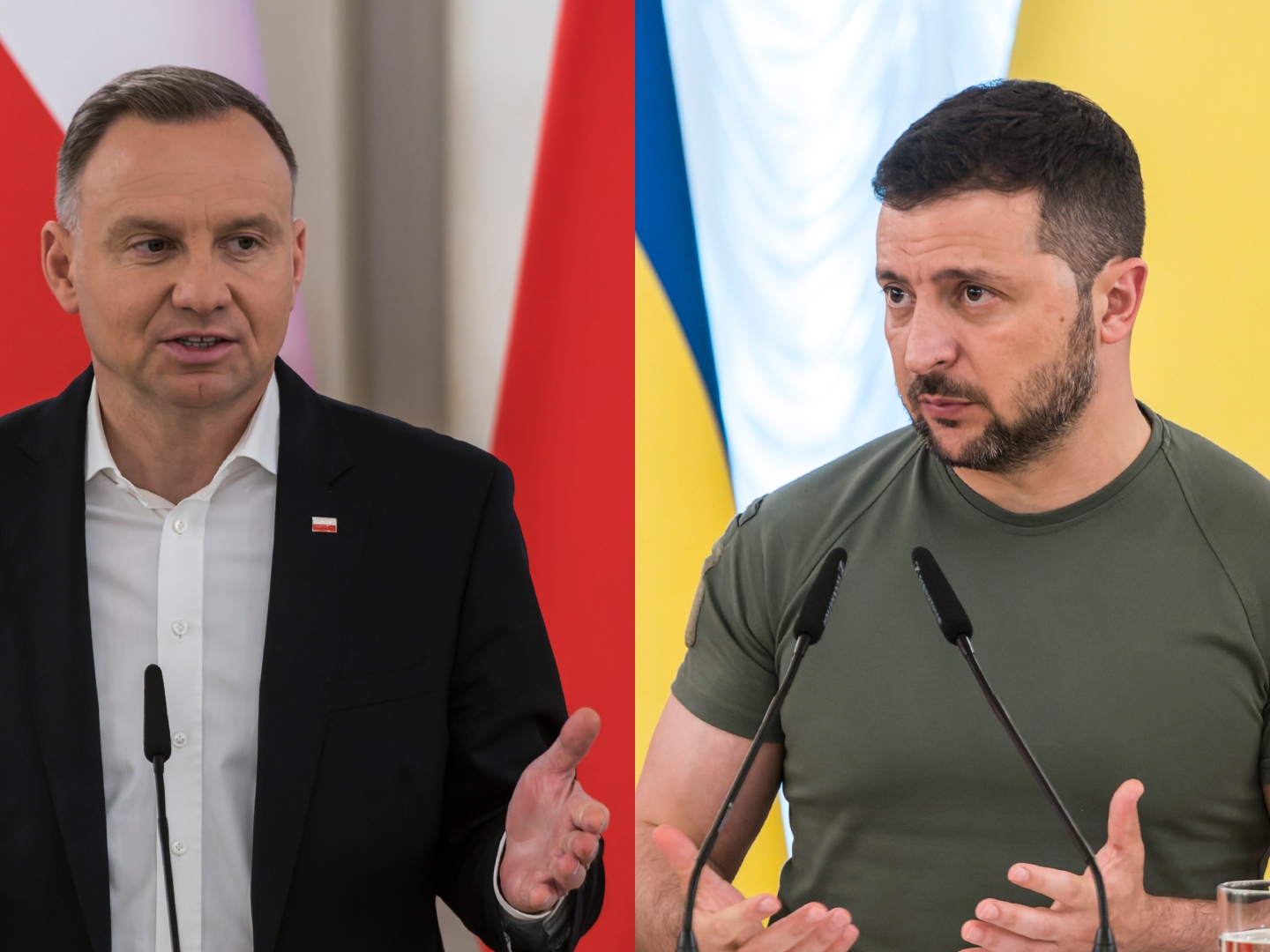Polish President Andrzej Duda reportedly cancelled a planned meeting with Ukrainian leader Volodymyr Zelensky at the United Nations in New York as relations between the two neighbouring countries have grown increasingly tense over the issue of grain.
A meeting between the two presidents was scheduled to take place during the 78th session of the UN General Assembly in New York City, yet, President Duda called off the meeting, claiming that there was a scheduling conflict and that they may meet at another time, Rzeczpospolita reported.
However, the apparent snub of Zelensky comes amid a growing trade battle over agricultural products following the decision last week by the European Commission to not extend restrictions on Ukrainian grain and other produce. With fears of having their own farmers undercut by cheaper food prices, Hungary, Poland, and Slovakia said that they intend to maintain their own restrictions on imports, with Warsaw hinting they will seek to keep up barriers indefinitely.
Ukraine, in response, has said that it will make a complaint to the World Trade Organization (WTO) against Poland and seek arbitration if its neighbour imposes restrictions on its agricultural exports.
Responding to the dispute, President Duda told the Polish Press Agency on the sidelines of the U.N. assembly that although Poland wants to help Ukraine against Russia, Warsaw will not sink its own economy in the process, describing Ukraine as a “drowning man”.
“Everyone who has ever participated in saving a drowning person knows that a drowning man is extremely dangerous; that he can pull deep. It has unbelievable strength due to personal fear, the influence of adrenaline and can simply drown the rescuer,” he said.
“It’s a bit like the situation between Poland and Ukraine. Ukraine is under Russian attack, no doubt in a very difficult situation, grasps everything possible. Can you blame her for that?
“Do you have to act to defend yourself against harming the drowning person? Of course, we must act in such a way as to defend ourselves against harming us, because if the drowning man leads to damage and drowns us, he will not get help. So we have to look after our interests and we will do it effectively and decisively.”
Duda added in an interview with Bloomberg: “We cannot allow Ukrainian grain to be sold on the Polish market without any control. We also have our own citizens, we have to care for their interest… It’s a pity our Ukrainian neighbors don’t want to understand that.”
Poland, which spent decades under the thumb of Moscow during the Cold War, has been one of the strongest backers of Ukraine since the Russian invasion last year.
According to President Duda, Poland is currently housing approximately two million Ukrainian refugees, and has facilitated a further seven million to pass through its borders to the rest of Europe. In addition, the president said that Warsaw has supplied over 300 tanks, nearly all of the coutry’s MiG 29 fighter jets, and over 100 howitzer-equipped military vehicles to Kyiv’s war efforts.
The stance has come in contrast to Poland’s typically closest ally in Hungary where Prime Minister Viktor Orban has consistently urged for peace talks to begin to end the conflict.
In his speech to the United Nations on Tuesday, Duda said that Poland will continue to support Ukraine’s efforts to restore their legally recognised 1991 borders, and urged countries to continue supplying military aid to help Kyiv accomplish the goal.
However, amid the growing tension over trade issues, some politicians within the country have suggested that Poland could use its position — particularly as a transport hub for Western weapons — to pressure Ukraine into backing down from the dispute.
The leader of the right-wing populist New Hope party, Sławomir Mentzen said on Monday: “If Ukraine wants to introduce a ban on the import of Polish fruit and vegetables, it should be asked what it thinks about the Polish ban on the export of weapons and ammunition to Ukraine.
“Ukraine is probably doing too well in the war with Russia if it wants to start a trade war with Poland now.”
